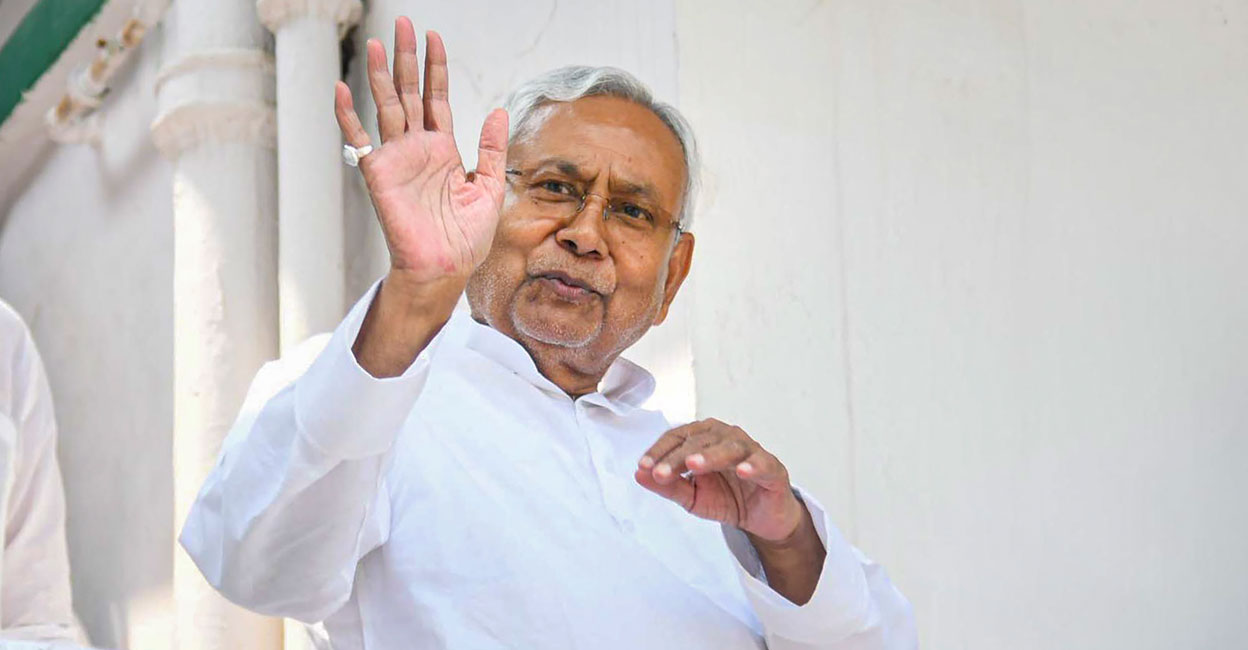
Who is Nitish Kumar? Nitish Kumar is a prominent Indian politician known for his leadership in Bihar. He has served as the Chief Minister of Bihar multiple times and is a key figure in Indian politics. Born on March 1, 1951, in Bakhtiarpur, Bihar, he started his political journey with the Janata Dal and later became a significant leader of the Janata Dal (United). Kumar is known for his focus on development and social reforms in Bihar, earning him a reputation as a transformative leader. His tenure has seen improvements in infrastructure, education, and law and order. Despite facing political challenges, he remains a pivotal player in the Indian political landscape.
Early Life and Education
Nitish Kumar, a prominent Indian politician, has a fascinating background. Let's explore some key facts about his early life and education.
- Born on March 1, 1951, in Bakhtiarpur, Bihar, Nitish Kumar grew up in a modest family.
- His father, Kaviraj Ram Lakhan Singh, was a freedom fighter and an Ayurvedic practitioner.
- Nitish Kumar completed his schooling at a local school in Bakhtiarpur.
- He pursued a degree in Mechanical Engineering from Bihar College of Engineering, now known as National Institute of Technology, Patna.
- Despite his engineering background, he chose to enter politics, inspired by his father's legacy.
Political Career Beginnings
Nitish Kumar's journey in politics began in the 1970s. Here are some interesting facts about his early political career.
- He joined the Bihar Legislative Assembly for the first time in 1985 as a member of the Janata Dal.
- During the 1974 Bihar Movement, led by Jayaprakash Narayan, Nitish Kumar actively participated, which marked his entry into politics.
- He was elected to the Lok Sabha, the lower house of India's Parliament, in 1989.
- Nitish Kumar served as the Union Minister for Railways from 1998 to 1999.
- He played a crucial role in the formation of the Samata Party in 1994, which later merged with the Janata Dal (United).
Chief Minister of Bihar
Nitish Kumar's tenure as the Chief Minister of Bihar has been marked by significant achievements and challenges. Let's delve into some notable facts.
- He first became the Chief Minister of Bihar on March 3, 2000, but his term lasted only seven days due to a lack of majority.
- Nitish Kumar was re-elected as Chief Minister in November 2005, marking the beginning of his long-term leadership in Bihar.
- Under his leadership, Bihar saw significant improvements in infrastructure, law and order, and education.
- He introduced the "Bicycle Scheme" for girls, which significantly increased female school enrollment.
- Nitish Kumar's administration focused on improving healthcare facilities, leading to better health outcomes in the state.
Awards and Recognition
Nitish Kumar's contributions have been recognized both nationally and internationally. Here are some facts about the awards and recognition he has received.
- In 2010, he was awarded the "Polio Eradication Champion Award" by the Rotary International.
- Nitish Kumar received the "CNN-IBN Indian of the Year" award in Politics in 2010.
- He was honored with the "Best Chief Minister" award by the Economic Times in 2011.
- The United Nations recognized his efforts in disaster management and flood relief in Bihar.
- Nitish Kumar has been praised for his commitment to social justice and inclusive development.
Nitish Kumar's life and career offer a compelling story of dedication, resilience, and transformative leadership.
Nitish Kumar's Impact
Nitish Kumar's journey in Indian politics is nothing short of remarkable. From his early days in student activism to becoming Bihar's Chief Minister, his career is filled with significant achievements and challenges. Known for his focus on development and governance, Kumar has implemented numerous policies that have transformed Bihar's infrastructure, education, and healthcare systems.
His ability to form alliances and navigate the complex political landscape has kept him relevant for decades. Despite facing criticism and setbacks, Kumar's resilience and dedication to public service remain evident. His leadership style, often described as pragmatic and inclusive, has earned him respect across party lines.
Understanding Nitish Kumar's contributions provides valuable insights into the dynamics of Indian politics. His story is a testament to the impact one leader can have on a state's progress and the importance of perseverance in public service.
Was this page helpful?
Our commitment to delivering trustworthy and engaging content is at the heart of what we do. Each fact on our site is contributed by real users like you, bringing a wealth of diverse insights and information. To ensure the highest standards of accuracy and reliability, our dedicated editors meticulously review each submission. This process guarantees that the facts we share are not only fascinating but also credible. Trust in our commitment to quality and authenticity as you explore and learn with us.


